A Snowball’s Chance in the Southern Ocean
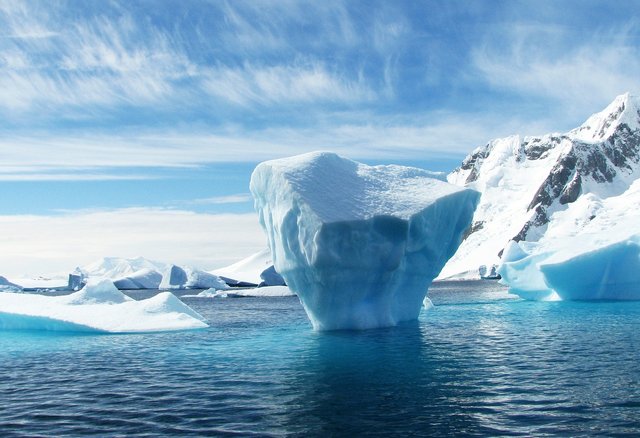
Most people don’t think much about icebergs. When the subject arises, my supercomputer/brain dredges up just two major references. One is the Titanic, since we know that story of the big ship sinking after hitting a large chunk of ice in the ocean. My brain’s second reference is that old cliché that 90% of an iceberg sits beneath the water (and below the 10% you can see, which is the part sticking above the water). After checking this online, it's close to being correct: about 87.5% of an iceberg sits below the surface of the water.
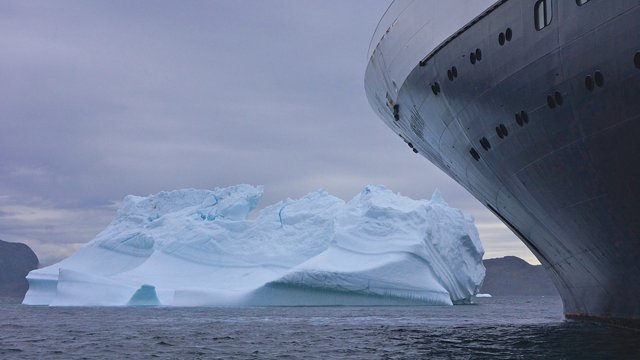
In a delayed reaction, my brain also recalls that I once read an article about towing icebergs to dry climates where they could provide a source of fresh water. (Yes, icebergs contain fresh water, not salt water.) That bell rang again when I noticed some recent discussion of this topic; it seems to come up regularly.
Australia, the Arabian peninsula, the Sahara, southern Africa, parts of China, the southwestern United States: these are places that can be challenging to live due to dry climates that seem to be getting drier. What a gift it would be to have a huge iceberg to place right above a drinking water reservoir, underground aquifer, or headwaters of a river. All of that melting ice could provide plenty of water for drinking, irrigation, and other uses.
There is a Canadian company that tows floating icebergs away from offshore oil platforms to prevent collisions, but its experience is limited to relatively small bergs and short tow distances. Could an iceberg really be towed halfway up the globe? Would it melt on the way from being lashed by warm waves and ocean currents? Would this towing idea be economically feasible? Could it work?
Let me start with the last question. It’s been a subject of debate since the idea first arose in the 19th Century. Some experts say it will never be worthwhile to tow an iceberg for thousands of miles. Others disagree, believing that it could be done relatively cheaply and without the loss of too much ice in transit. Both sides have their models, but neither mean much in the theory stage. Given the disparity between views, we simply won’t know the correct answer until someone tries it.
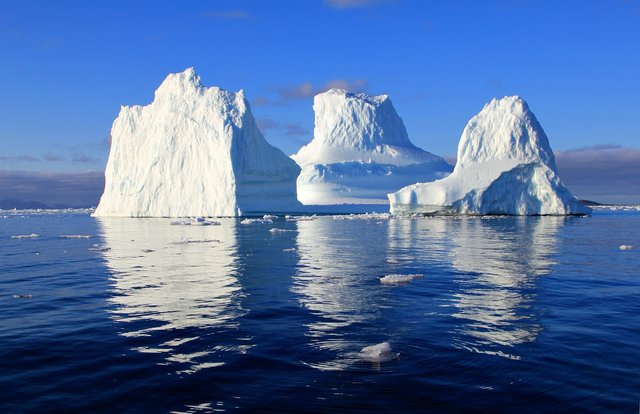
That opportunity may arise sooner rather than later. Population growth in some dry areas means that groundwater supplies will be gone in the near future. Given the high cost of pipelines and of desalinating seawater to make fresh water, could it make economic sense to tow an iceberg to somewhere like the United Arab Emirates (UAE), which is projected to run out of groundwater in the next 15 years? An engineering firm called NABL in Dubai has proposed to tow an iceberg there from Antarctica, stopping midway in Sydney or South Africa.
"If we succeed with this project, it could solve one of the world's biggest problems," Abdulla Alshehi, NABL's founder told NBC News. "So if we can show this is viable, it could ultimately help not only the UAE, but all humanity."
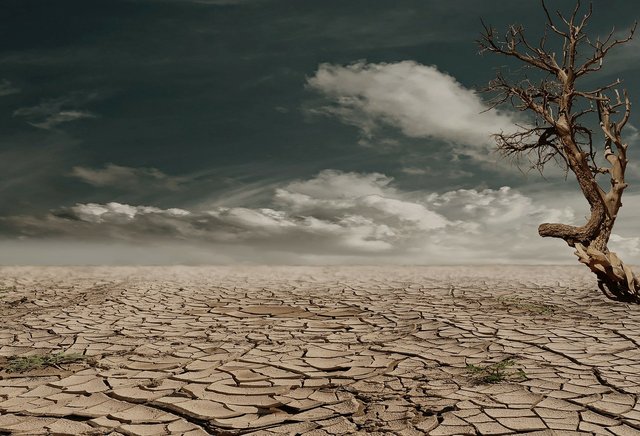
Looking at a map, Dubai is north of the equator, so an Antarctic iceberg would need to be towed more than halfway up the globe, crossing the equator and losing mass through the warmest sections of the world’s oceans.
This Dubai company’s plan is to stop partway in Australia or South Africa. But why not use one of those as a destination? Much of Australia is dry and thirsty. Capetown, South Africa has suffered a well publicized drought in recent years. And both countries are a reasonable distance from Antarctica, separated from it only by the Southern Ocean. The destination would need facilities and/or a landing spot that could accommodate an iceberg and harvest the water as it melted. Ideally, it could be placed right over an aquifer, reservoir, or other body of water, but that may be impractical if these spots are very far inland, and collecting the water as it melted might be more efficient.
Most likely, we will see someone try this iceberg towing scheme in the next few years, if only because some dry areas of the world are getting more desperate for water. Desalination and pipelines are expensive alternatives. And if someone gets this right, proving that icebergs can be moved practically, then that proof, expertise, and eventual competition could make it more economical over time. But first, we need to see that it works.
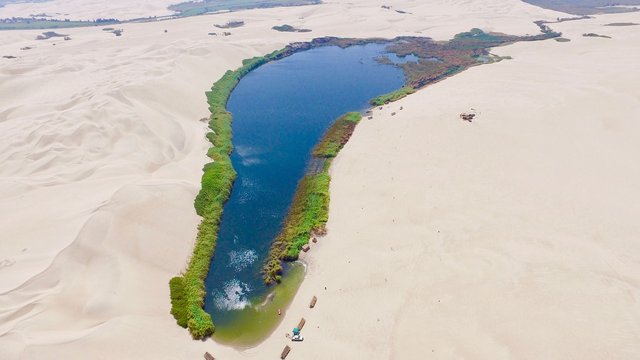
References:
https://www.nbcnews.com/mach/science/how-hauling-icebergs-could-help-sustain-world-s-thirstiest-regions-ncna898036
https://www.businessinsider.com/engineering-firm-tow-icebergs-antarctica-for-water
https://www.theguardian.com/environment/2017/may/05/could-towing-icebergs-to-hot-places-solve-the-worlds-water-shortage
Images are public domain.
Hlw.sir nice to see you.
Your analysis about these matter really so thought full.From your this we can know many unique things that so important for our nature.Also about this matter many another things also effective.
Thanks for sharing us These words.
Have a nice Day...
Thanks @donkeypong, now I'm thinking about this problem. It is very interesting.
We'll wait to see it!
If someone was to pull this off...the implications are huge! After driving through the mojave to get to California this past summer I've had a greater understanding of the struggles of those living in dry conditions. It was startling actually, some of the small...I can only call them settlements, my heart went out to them. I hope they do make this work.
It's a creative solution to foreseeable problem. But I can't help but doubt the feasibility of this idea. The the amount of fresh water during transit may decrease due to diffusion across the salty ocean. The cost of processing the ice for impurities and distribution may also be more expensive than sourcing saline water on nearer areas.
I think it is more likely feasible if the destination areas are closer to the source. Or, if there was an efficient way of processing and transporting the iceberg into smaller pieces to different parts of the world.
First, I'll say that those are the first two things I think of when I think of icebergs. I also think of glaciers in Alaska, but that's different. And I like your articles, because they're well thought out and interesting to read. Also, you have lots of pretty pictures and I find picture books easier to read than the ones without. :)
Regarding the feasibility of actually towing an iceberg somewhere, it's not an ideal solution. First, icebergs aren't a renewable resource. They're not something that is being produced on a mass scale and can be created whenever the older ones are used up.
Second, they paint the decks of the oil tankers white because it gets so hot when they're going through the UAE and such that the difference between a white deck and a red deck is like 10% of their cargo. (I think that was right. It was from a show on Netflix).
Third, if you don't remove the iceberg from the salt water
when(if) it reaches its destination, then you would be losing large amounts of fresh water there which could do serious damage to the ecosystem.That's just my opinion. I'd actually think that processing (melting) the loose icebergs on location and transporting the water to the destination would be a more efficient and safe way to get fresh water there. Just something to consider.
Thanks for another thought-provoking and entertaining article!
That's interesting about the ships being painted white; I hadn't known that. Yes, UAE makes no sense to me, but I could see someone trying this for Australia or southern Africa. They've been debating it since the 19th Century and I think someone just needs to try it. Either it will work well or will be a total boondoggle, but either way we'll learn which one. For processing, I would guess they'd need to set something up in a deepwater harbor where they wall it off somehow, maybe creating a giant condom for it or using a lock system to tow the whole mess into its own big tank that would have the salt water pumped out upon arrival.
Good use of the word "boondoggle!" Ha ha. I think you're right that Australia or Cape Town would be a better location for a test run. The UAE likely has more money for such a venture though. And they would want to be the first place that had it done, at least for the notoriety. That's just my guess. I imagine someone is working on a solution that could put some sort of bag around the iceberg, but it would be challenging. How do you keep the bag from tearing, and how do you deal with the shrinkage as the ice melts and just becomes water? I'm curious to see if someone actually tries this.
Well, what will actually happen is huge advances in desalinating water on demand.
The problem is....
dun, dun DUUUNNNNN
politics.
The people controlling everything want water to stay rare and valuable. Who cares how much crops die.
So, those working on desalinating water are having to do things like desalinate off shore.
One way is to use nanomachines. These machines grab on to salt ions, and then, you use a magnet to pull all the nanomachines out of the water, along with all the salt. Repeat.
Desalination is fine if it accounts for the energy costs (I know that's been getting cheaper with improved desalination tech) and the environmental question of what to do with that concentrated salt. Putting it back in the ocean can kill off a lot of sea life, if I recall, though I have not looked at the issue recently.
You are right . maybe dry countries can use icebergs for their water sources. But it will take a large amount of money to attract ice plus the temperature in the country is hot so the ice melts quickly. Immn my country there has never been snow because we live in a tropical country with rain all year round. But the problem is that many forests are cut down so that when it rains it often floods.
There's a huge problem of water shortages/supply in my country (southern Africa) never seen iceberg physically before. I think iceberg can help solve this problem and I wish the projects you mentioned above to succeed probably so that people/governments can copy and start their own projects.
BTW, I envy the quality of your content and I would think it has motivated me.
Thank you!
Posted using Partiko Android
Can you imagine the sight of an iceberg arriving in your country? :)
Truth be told, I can't lol
Posted using Partiko Android
Why not simply melt the ice on location, fill oil tankers full of fresh water, and ship it that way? People these days...
We need giant hoses.
A water pipeline would be ideal.
Because of the quantities involved. Oil is much more monetarily dense.
Ship oil, desalinate water, it is cheaper.
Think about bottled water. One standard 53 foot trailer holds 30 pallets of the stuff. 58 pallets if they're double stacked. 30 pallets is about 28000 liters of water. I think I can buy one pallet with 1920 500ml bottles for about $380.00 right now.
I'm thinking it's still cheaper to ship fresh water.
I understand, however, you are comparing bottled water prices with tap water prices.
And comparing drinking-only water with all uses water.
Even these dry areas have quite enough drinking water. They need a lot more water for all other uses.
Comparing a semi-truck full of water with the water tanks that feed a city. There isn't any comparison.
Los Angles has several canals that are bigger than a semi constantly flowing water to the city. If you were to do that with supertankers, you would have to have a string of them, constantly delivering water. bow to stern as far as the eye could see.
Further, if LA could pay for that kind of shipping, Seattle has more than enough water. Much closer and already melted.
If they're dragging icebergs all that way just to flush down the toilet or pour down the drain, they're doing it wrong. Seawater works fine for that.
If you don't mind replacing the pipes every few years. ;)
I already pictured easily accessible above ground lines for that very reason. Something that could be swapped out, cleaned offsite, ready to be reused. If people want to live, they'll have to make changes. Look how many jobs I just created off the top my head...
@donkeypong, I'm glad to read your whole article coz it's nature thing included title. Yep...more peoples don't find about icebergs. So don't like to build up conversation about it. In future peoples face big difficulty without drinking water. In this condition groundwater supplies can increase better. But I guess those process can be more expensive. But your info exceed my words. Thanks for given big valuable blog. It improve my knowledge.
Thanks for the comment and I'm glad you learned something.
I prefer to learn more thing about different kind of nature.